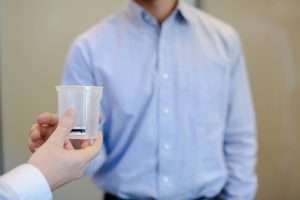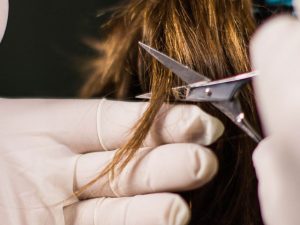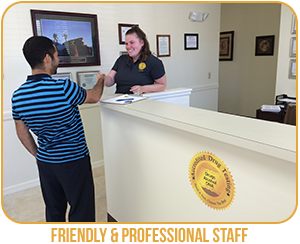
Drug & Alcohol Testing Centers, New Richmond, WI
Accredited Drug Testing Inc, is the nation's leading provider of drug, alcohol, occupational health, and DNA testing and has testing centers in New Richmond, WI and throughout the local area. Testing centers are within minutes of your home or office and same day service is available in most cases.
535 HOSPITAL RD 0.9 miles
NEW RICHMOND, WI 54017
551 HOSPITAL RD 0.9 miles
NEW RICHMOND, WI 54017
228 PAPERJACK DR 1.3 miles
NEW RICHMOND, WI 54017
250 RICHMOND WAY 1.5 miles
NEW RICHMOND, WI 54017
730 10TH AVE 13.1 miles
BALDWIN, WI 54002
1640 10TH AVE 13.9 miles
BALDWIN, WI 54002
405 STAGELINE RD 13.9 miles
HUDSON, WI 54016
403 STAGELINE RD 13.9 miles
HUDSON, WI 54016
927 W Churchill St 14.6 miles
Stillwater, MN 55082
2600 65TH AVE 14.7 miles
OSCEOLA, WI 54020
265 GRIFFIN ST E 14.9 miles
AMERY, WI 54001
5815 NORELL AVE N AT THE FRONT OF STORE 15.2 miles
STILLWATER, MN 55082
13999 60TH ST N 15.2 miles
STILLWATER, MN 55082
1500 CURVE CREST BLVD 15.3 miles
STILLWATER, MN 55082
357 3RD AVE 15.7 miles
CLEAR LAKE, WI 54005
135 STENE DR STE 4 16.8 miles
WOODVILLE, WI 54028
1687 E DIVISION ST 18.3 miles
RIVER FALLS, WI 54022
1687 E Division St, 18.3 miles
River Falls, WI 54022
144 E OAK ST 18.3 miles
GLENWOOD CITY, WI 54013
216 S ADAMS ST 20.3 miles
SAINT CROIX FALLS, WI 54024
235 E STATE ST 20.5 miles
ST CROIX FLS, WI 54024
14665 MERCANTILE DR N STE 100 21.9 miles
HUGO, MN 55038
137 W 1ST ST 22.9 miles
LUCK, WI 54853
436 HAYWARD AVE N 23.4 miles
OAKDALE, MN 55128
1540 LAKE ST S 23.8 miles
FOREST LAKE, MN 55025
8380 CITY CENTRE DR 24.0 miles
WOODBURY, MN 55125
190 AVENUE & HIGHWAY 46 24.4 miles
BALSAM LAKE, WI 54810
Drug and alcohol testing services are provided for employers and individuals and are administered for various reasons including Employment related such as pre-employment, random, post accident and reasonable suspicion, also US DOT-Part 40, Court Ordered, School and personal reasons.
Scheduling a drug, alcohol or any testing service at any of our New Richmond, WI testing facilities is simple and easy. Call (800)221-4291 or you may schedule a test online 24/7 by clicking below and receive your donor pass/registration form with the testing center address and instructions via email.

Customer Service Is Our #1 Priority- Our Drug Testing centers recognize that needing a drug, alcohol or occupational health test can be stressful at times. Accredited Drug Testing takes the stress out of a stressful situation and is available to answer any questions you may have and provide our services in a friendly, courteous and confidential manner. Call our scheduling department today at (800)221-4291.
View all available drug testing services
Types of Drug Testing Methods Available
Our testing centers provide many types of drug testing methods, below is a brief description of each method choose the one that is right for your need.

Urine Test - Urine - Accredited Drug Testing provides drug testing utilizing the Urine screening method. Urine drug testing can be screened for 5, 7, 9, 10, 12 and 15 panel screenings. Urine drug tests can also include an expanded opiates analysis. Same day service is available and testing centers are located in all cities and in most cases within minutes from your home or office. The detection period for a urine drug test is up to 3-5 days and results are reported in most cases in 2- 3 days.
The procedure for a urine drug test is simple. A donor provides a urine specimen in a cup to a drug testing collection specialist who will then seal the specimen cup, complete various documentation including a chain of custody form, have the donor initial the specimen cup seal, provide identification and upon completion of the collection and paperwork the specimen will be sent in a secure manner by Currier to the laboratory for testing.
Hair Drug Testing - Accredited Drug Testing can provide a drug test utilizing the Hair follicle drug test method and a Hair drug test can be tested for 5, 10, and 12 panel screenings. The detection period for a hair drug test is up to 90 days and results are reported in most cases in 3 -5 days.
The hair drug test is becoming more frequently used by employers, courts and other government agencies due to the fact that the window of detection for illegal drug use for a hair is up to 90 days. Many courts have begun accepting hair testing in place of urine or blood testing and hair testing has been determined to be legally and scientifically admissible evidence in a court of law.
A hair drug test is a simple process whereby a drug testing collection specialist cuts approximately 120 strands of hair from the head or a specific amount from the body and submits the hair to a certified laboratory for analysis. A hair follicle drug test can be screened for a 5 panel, 10 panel or 12 panel test and can also include expanded opiates. If a donor does not have 1 ½ inches of hair on their head, body hair can be utilized, however, if the donor is bald and has none or very little body hair, a hair drug test is not an available option, a urine or oral/saliva test should be utilized.
In addition to our standard drug test panels, opioid screening can be added to any drug test to determine the use and/or abuse of any prescription drugs.


US DOT Testing and Part 40 Compliance - Accredited Drug Testing provides DOT drug testing for pre-employment, post-accident, reasonable suspicion and return to duty for companies or employees regulated and covered by 49 CFR Part 40 including FMCSA, USCG, FTA, FRA, FAA, PHMSA. The drug test required by the Department of Transportation is a 5-panel urine test, which must be analyzed by SAMHSA certified laboratory and verified by a Medical Review Officer (MRO).
Additional DOT services include:
- -DOT Consortium Membership (random testing)
- -DOT Supervisor Training
- -MVR Reports
- -DOT Drug Policy Development
- -DOT Physicals
- -DOT Breath Alcohol Testing
Our New Richmond, WI testing centers have certified DOT drug testing collection specialists who are trained in the proper collection of a DOT drug test.
The Opioid Overdose Crisis
Every day, more than 130 people in the United States die after overdosing on opioids. The misuse of and addiction to opioids—including prescription pain relievers, heroin, and synthetic opioids such as fentanyl—is a serious national crisis that affects public health as well as social and economic welfare. The Centers for Disease Control and Prevention estimates that the total "economic burden" of prescription opioid misuse alone in the United States is $78.5 billion a year, including the costs of healthcare, lost productivity, addiction treatment, and criminal justice involvement.
- Roughly 21 to 29 percent of patients prescribed opioids for chronic pain misuse them.
- Between 8 and 12 percent develop an opioid use disorder.
- An estimated 4 to 6 percent who misuse prescription opioids transition to heroin.
- About 80 percent of people who use heroin first misused prescription opioids.
- Opioid overdoses increased 30 percent from July 2016 through September 2017 in 52 areas in 45 states.
- The Midwestern region saw opioid overdoses increase 70 percent from July 2016 through September 2017.
- Opioid overdoses in large cities increase by 54 percent in 16 states.
In the late 1990s, pharmaceutical companies reassured the medical community that patients would not become addicted to prescription opioid pain relievers, and healthcare providers began to prescribe them at greater rates. This subsequently led to widespread diversion and misuse of these medications before it became clear that these medications could indeed be highly addictive.3,4 Opioid overdose rates began to increase. In 2017, more than 47,000 Americans died as a result of an opioid overdose, including prescription opioids, heroin, and illicitly manufactured fentanyl, a powerful synthetic opioid.1That same year, an estimated 1.7 million people in the United States suffered from substance use disorders related to prescription opioid pain relievers, and 652,000 suffered from a heroin use disorder (not mutually exclusive)

Court Ordered Testing - Accredited Drug Testing and our New Richmond, WI drug testing centers also provide drug and alcohol testing for probation and other court ordered testing requirements. Testing services include ETG alcohol testing and drug testing utilizing urine and hair methods. Test results can be sent directly to Probation Officers, Judges, Attorneys or other parties as required. Strict confidentiality is assured.
Alcohol Testing - Accredited Drug Testing and our New Richmond, WI testing centers provide alcohol testing including ETG testing in both urine and hair and Breath Alcohol Testing (BAT). Alcohol testing can be added to any drug test screening.


Testing Facilities Nationwide - In addition to our drug and alcohol testing centers in New Richmond, WI and the local area, Accredited Drug Testing has company owned and affiliated collection sites in all States and most cities to serve our clients' needs when traveling or employment related testing is required in multiple cities or States.
On-Site/Mobile Testing - Time Is Money!- Accredited Drug Testing provides On-Site drug testing services in all cities nationwide and can be used for construction sites, sporting events, job fairs and trucking/transportation companies, on site testing is available for DOT and NON-DOT regulated employers. In most cases, on-site mobile testing is cost effective when you have 10 or more employees needing to be drug or alcohol tested without leaving the job site.


Employer testing/account setup - If you are an employer with at least 5 employees and would like to set up an account for future testing, it's simple and easy. Call us and speak with a client relations representative, (800)221-4291 it takes 5 minutes or less to complete. Account benefits include no setup fees, test discounts, invoicing, test status tracking and personalized customer service.
Does Your Company Have a Written Drug Policy? - Employee Drug & alcohol testing is utilized best when conducted in conjunction with a clear, written drug policy that is shared with all employees, along with employee education about the dangers of alcohol and drug abuse, supervisor training on the signs and symptoms of alcohol and drug abuse, and an Employee Assistance Program (EAP) to provide help for employees who may have an alcohol or drug problem. If your company does not have a written drug and alcohol policy or your current policy needs to be revised, Accredited Drug Testing specializes in the development and implementation of an employer's drug and alcohol policy which complies with state and federal law.
DNA Testing Services -Accredited Drug Testing provides DNA testing at testing centers Nationwide for paternity, immigration, and family relationship purposes. DNA testing centers are located in most cities and within minutes of your home or office.
DNA testing can provide an accurate determination of the probability of paternity at 99% more of who the child's biological father or mother is. The initial DNA test takes only a few minutes at the testing center and involves the swabbing of the child and alleged fathers mouth, which will provide saliva to be analyzed by a certified laboratory. Our DNA results are analyzed by a certified AABB laboratory and can be used in a legal proceeding to determine paternity or child custody related issues.

"When you need a test, choose the best!"
Alcohol Testing New Richmond, WI Services
(800)221-4291
For more information regarding the effects of drug abuse - Click Here
For more information on a drug free work place - Click Here
Handy Resources
Comprehensive Online Resources for Drug Testing
- National Institute on Drug Abuse (NIDA)
Provides comprehensive information on drug testing and its role in substance use disorder treatment.
- FDA: Drug Testing
Explains the FDA's role and regulations concerning drug testing for consumers.
- PDR.net
Provides detailed drug information and safety updates through a mobile-friendly platform.
- BeSafeRx - FDA
Resource by the FDA to help consumers identify and choose safe online pharmacies.
- SAMHSA: Drug Testing Resources for the Workplace
Resources and guidelines for drug testing in the workplace.
- Drugs.com
Provides drug information, side effects, and interactions for consumers and professionals.
- Drug Abuse Screening Test (DAST)
Online version of the DAST to help individuals assess whether they have a drug problem.
- Merck Manuals
Consumer-friendly medical resource providing comprehensive information on a wide array of health topics, including drug testing.
- SAMHSA Store
Provides access to resources and publications on substance use prevention and treatment.
- National Association of Boards of Pharmacy (NABP)
Information on state boards of pharmacy and regulations, including those related to drug testing.
- CDC: Workplace Health Promotion
CDC's resources on substance use and drug testing in the workplace.
- Mayo Clinic: Drug Testing
General information about the procedures and types of drug tests.
- MedlinePlus: Drug Testing
Offers information about various drug tests and their uses in medical diagnosis and treatment.
- University of Rochester Medical Center Health Encyclopedia
Provides a detailed entry on drug testing, including how tests are conducted and what they detect.
- World Health Organization (WHO)
International guidelines and information on public health, including substance abuse and drug testing.
- Healthline: Drug Testing
Consumer health site offering information on how drug tests work and what they look for.
- WebMD: Drug Testing
Provides a patient-oriented overview of drug testing and its purposes.
- National Center for Biotechnology Information (NCBI)
Provides a vast database of scientific studies, including research on drug testing and its effectiveness.
AI Overview
Overview of Drug Testing Collection Centers
Drug testing collection centers are specialized facilities where individuals submit biological samples for drug testing. These centers play a crucial role in the drug testing process, serving industries such as transportation, healthcare, sports, and many sectors requiring workplace safety and compliance with drug-free policies. This overview details the functions, types of tests conducted, and what individuals can expect during a visit to a drug testing collection center.
Functions of Drug Testing Collection Centers
Collection centers are primarily responsible for the secure and proper collection of samples, ensuring that they are uncontaminated and accurately reflect the subject's drug use status. They adhere to strict procedures to maintain confidentiality and integrity of the testing process.
Types of Tests Conducted
- Urine Testing: The most common form of drug testing, used to detect recent use of drugs such as marijuana, cocaine, opiates, amphetamines, and others.
- Hair Follicle Testing: Provides a longer detection window compared to urine testing and is used to analyze drug use over a period of months.
- Saliva Testing: Used for its non-invasive nature and ability to detect immediate drug use.
- Blood Testing: Although less common due to its invasive nature, it is the most accurate form of drug testing.
What to Expect at a Collection Center
- Identification Verification: Upon arrival, individuals must present valid identification to ensure that the samples correspond to the correct person.
- Sample Collection: Trained professionals collect samples in a manner that minimizes the chance of tampering or contamination. This might involve measures such as securing personal belongings and direct observation during sample provision.
- Chain of Custody: Each sample is handled with a documented chain of custody procedure to maintain its integrity from collection to testing laboratory.
Importance of Collection Centers
Drug testing collection centers are vital for ensuring the effectiveness and reliability of the drug testing process. They provide essential services that help employers maintain a safe and productive workplace, enforce legal and regulatory requirements, and assist in rehabilitation processes. The professionalism and accuracy practiced by these centers are crucial for upholding the trust and safety standards expected in many professional environments.
Were you looking, instead, for:
Local Area Info: New Richmond, Wisconsin
New Richmond was founded in 1857. The first permanent settlement was established by Hiram Foster, who had led a group of settlers from Vermont into the area in search of virgin Wisconsin timber for harvesting. Foster built and operated a sawmill on the banks of the Willow River, which gradually drew more settlers from New England into the area. For the first few years the settlement was called Foster's Crossing, and was later renamed after Richmond Day, the land surveyor who plotted the town. Because another town in Wisconsin had already taken the name Richmond, it was decided to call the town New Richmond. In 1871, New Richmond was made a station on the southwestern branch of Chicago, St. Paul, Minneapolis & Omaha Railroad's 'Omaha X' network, initially working northwards from Hudson to New Richmond and providing a direct connection to St. Paul. Construction on the line continued northeast of New Richmond, reaching Spooner in 1879. In addition to a steady stream of newcomers from New England, New Richmond saw an influx of Irish immigrants throughout the 1870s and early 1880s, later followed by large numbers of Germans, Norwegians and a few Swedes throughout the 1880s and 1890s. In 1885, the Wisconsin Central Railroad built a line into the north side of town westward from Chippewa Falls, from where it later continued towards Stillwater and on to St. Paul.
On the early evening of June 12, 1899, a deadly F5 tornado tore through St Croix, Polk and Barron counties along a 46-mile path. While most of the storm's path was confined to rural areas, New Richmond suffered a direct hit, as the tornado leveled half the town's residences and the entire business district. In all, the tornado killed 117 people, 111 at New Richmond alone, injured more than 125, left over 1,500 people homeless and caused an estimated $18 Million in damage. Due to state and federal aid and a large amount of donations, most of the homes and all but two of the businesses destroyed in the storm were able to rebuild by the following winter. Today, the tornado ranks as the deadliest ever recorded in Wisconsin and the ninth deadliest tornado in American History. Most of Main Street (Knowles Avenue) was rebuilt within five months.
According to the United States Census Bureau, the city has a total area of 9.35 square miles (24.22 km2), of which, 9.18 square miles (23.78 km2) is land and 0.17 square miles (0.44 km2) is water. A major source of hydrological water is from the Willow River which is dammed near the center of town.



